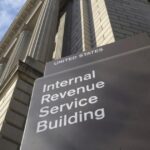The country is anticipating another set of significant rulings from the Supreme Court, particularly on climate cases.
There are two key terms you should become familiar with: The “Chevron doctrine” and the “good neighbor plan.” Both of these could potentially be invalidated by the Supreme Court in the near future.
If this occurs, it could greatly restrict the regulations that federal agencies in Washington are able to create, particularly in relation to climate change.
The Chevron doctrine allows agencies to interpret laws and establish regulations like the “good neighbor plan,” which is the Environmental Protection Agency’s strategy for controlling pollution in 23 states.
Some states, such as Ohio, have contested this status quo, arguing that the regulations place excessive pressure on electrical grids and that the EPA does not have the necessary authority.
“I definitely believe that EPA’s regulations will be up for reevaluation if Chevron is limited or overturned,” stated Jonathan Siegel, a law professor at George Washington University.
Siegel highlights that if Chevron is invalidated, it could significantly impact the EPA’s capabilities, but he advises that it may take time to understand the full repercussions.
On the other hand, Alison LaCroix, a law professor at the University of Chicago, presents a different viewpoint.
She suggests that the ruling could substantially alter the federal government’s ability to implement any regulations, including those related to climate change.
“This could potentially dismantle the federal administrative state,” LaCroix remarked.
If the forthcoming Supreme Court decisions invalidate or make it easier to challenge regulations related to climate change, it could pose obstacles for President Biden in issuing new regulations in a hypothetical second term. Conversely, the upcoming decision could facilitate former President Trump in reversing actions if he is re-elected.
During his tenure, former President Trump repealed approximately 100 environmental regulations.





